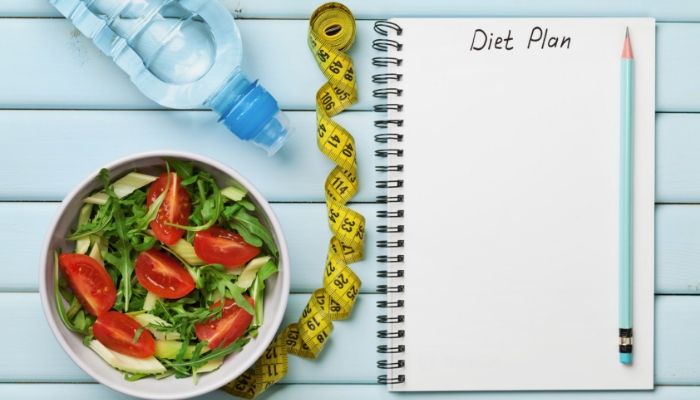Part 1: Finally! A simple diet plan that can benefit everyone!
JANUARY 26, 2017 by OLIVIA NEELY, RDN, LD
Plenty of weight loss programs in Philadelphia center on severe calorie restriction, appetite suppression through medications, and exercising ’til you drop. Introducing the MACRO-trio plan: a baseline diet that can benefit everyone, and the best part is you might need to eat more than you do now.
As fascinating as the field of nutrition can be, it can be just plain overwhelming sometimes! As a registered dietitian, I’ll be the first to admit that nutrition is a complicated and very individual science. There truly is no one-size-fits-all. I always encourage my clients to listen to their bodies and adjust as feels right. However, after many years of practicing nutrition – constantly reading, studying, trouble-shooting individual client response, and experimenting with my own diet – I have come to realize that there is a baseline diet that EVERYONE can and should start from!
I say it’s time we break down our preconceived notions surrounding the dizzying world of nutrition and bring it back to the basics. Doesn’t that sound refreshing? But before I introduce this simple, yet life-changing plan I would like to review a few things first….
Defining the Term “Diet.”

I can almost feel your cringes through the screen – and this is exactly why this is my first point of discussion! Over the past 40ish years of poor nutrition advice the word “diet” has been completely re-defined, and not in a good way! This term has a negative connotation because historically it’s entailed habits like counting calories, adopting a low-fat lifestyle, skipping meals, rapid changes in energy intake, and limiting portions. If you’ve done this once, well, maybe it wasn’t so bad and you lost a few pounds (mini-celebration), but then you resume regular eating habits and the weight comes right back on. What next? Another diet. Another temporary win followed by another longer fail. This viscous cycle of yo-yo dieting can last a lifetime for some and only leads to poor self-confidence and wrecked hormones! As you will learn over the course of this blog series, hormones are EVERYTHING in sustaining weight loss.
The problem with weight loss is that to lose body fat we need to put our body in a “calorie deficit” for an extended period of time, but this solution is much more complex than just eating less and exercising more. The brain has powerful mechanisms for overriding our efforts to lose weight. For example, if you reduce calories the body responds by lowering metabolism to match this reduced intake. So, as you eat less calories your body uses less calories – not only that – your body also revs up your hormones that raise your appetite and drive you to eat more! Talk about sabotaging your weight loss efforts!
In conclusion, it’s nearly impossible to eat fewer calories than your body used through sheer willpower alone—and that’s why calorie-restricted diets fail. This is why I never recommend counting calories!
So, let’s get one thing straight – this IS NOT a diet in the (falsely) re-defined sense. The plan I am about to tell you about is what I am calling a “lifestyle diet.” This means I am not suggesting a short-term change in food intake that will somehow provide lasting health benefits, because that is not what “diet” really means. I am proposing a paradigm shift in the way we think about food. Merriam-Webster defines diet as, “food and drink regularly provided or consumed.” So, let’s regularly consume food that promotes our body’s natural health and vitality instead of starting another temporary diet change that only ends in frustration.
The Secret Ingredient.
Ok, so this is where I let you in on the real secret that makes this lifestyle diet work. FOOD. Yep – real food. That’s the secret ingredient of this entire plan! In fact, it’s probably more food than you’re currently eating. That’s the best part! You will feel energized, balance your weight, hormones and mood while eating more than you may have ever eaten before. Just how is that possible?
It’s simple…when we eat real food our body knows exactly how to put it to work. However, when we eat a lot of food-products, processed foods, and too much sugar our body really doesn’t know how to metabolize it and mobilize it for energy, so instead it’s stored as fat. This excess fat is not just innocently sitting on our thighs either. Excess fat are active endocrine organs that secrete hormones (inflammatory cytokines) which leads to inflammation and lowers insulin sensitivity. It is metabolically active and affects body’s ability to burn fat; produces insulin and suppress satiety hormones.
Every single one of my diet plans begins with a whole foods base. No exceptions. What does that mean? In short: you wouldn’t go to a field and pick a bag of potato chips, would you? But you would go to a field and pick a potato. Eat the potato, not the potato product.
I call this plan MACRO-trio and it’s all about bringing nutrition back to the basics.
Each meal should provide the energy, focus and vitality needed to propel us through the day, not simply survive it. Whether you are tired, overweight, run-down or just plain fed-up with contradicting health information, this is for you. This plan is designed to allow the body to self-regulate back to its designed metabolic function. When my clients give the quality of food just as much care as the quantity, their desired health goals become attainable. Nourishing your body and reaching your health goals doesn’t have to seem impossible anymore.
It’s simple: our bodies need all three macronutrients (carbohydrates, fat and protein) at each meal to run optimally. Hence the name – MACRO-trio (three macronutrients).
In the next two blog posts, you will see which foods make up each one of these macronutrient categories and how much to eat of each. Meal and snack time doesn’t get much easier than checking your plate for three things (carbohydrates, fat and protein). The best part is – food is information, so this plan can be individualized for maximum personal benefit. Gauge the need for more or less of a macronutrient based on your body’s unique feedback mechanism: if more energy is needed between meals, start by increasing the serving of healthy fat or protein before increasing the serving of carbohydrates… with one exception… learn what this is on the next post!
Reach out to us for a consultation today! Just call 215-558-2731 or fill out our contact form.





